EU Clean Industry Deal: The Contribution of Eco-Industrial Parks and the Conclusion of the ECOLE Project
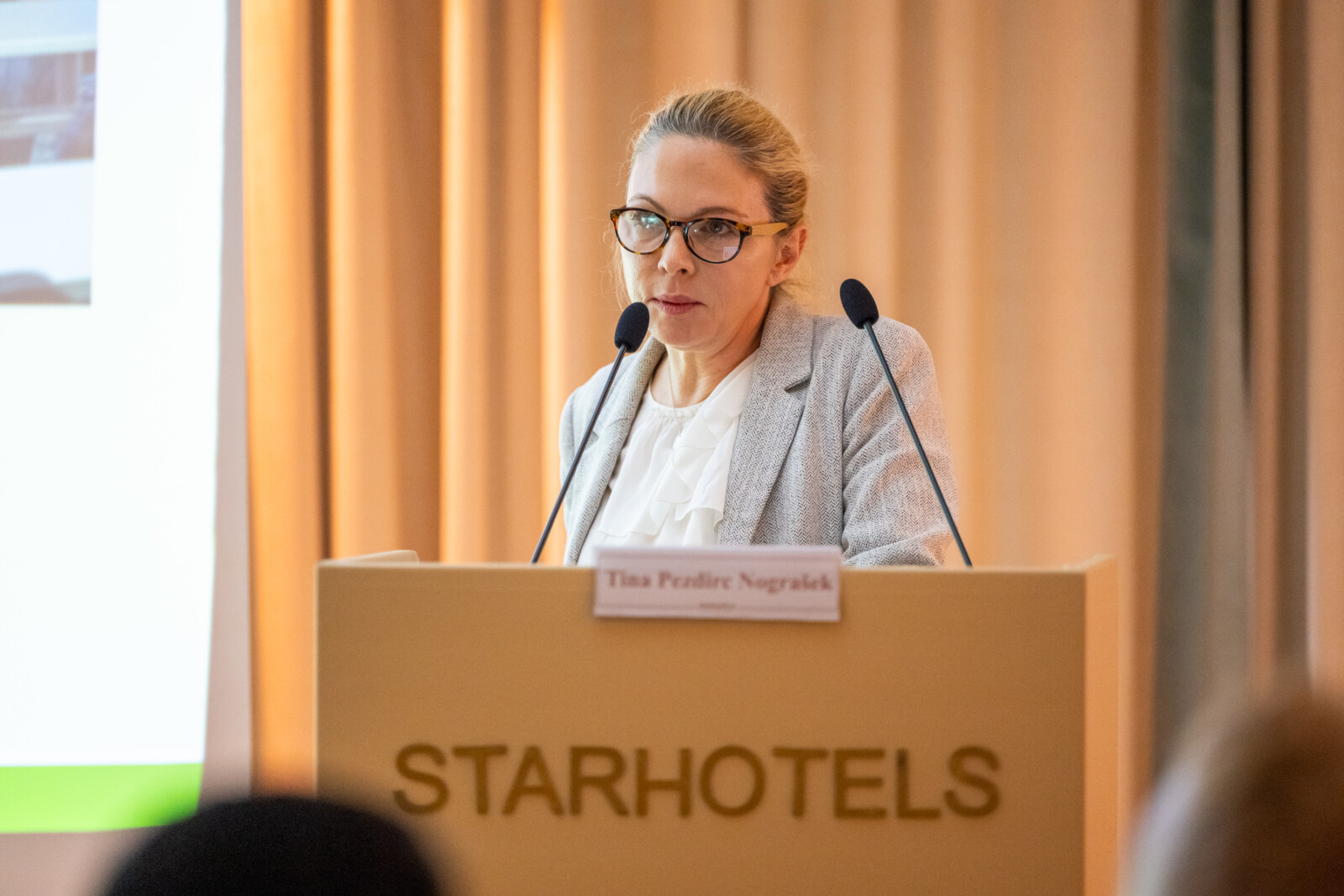 On 23 October 2025, the prestigious Savoia Excelsior Palace in Trieste hosted the final conference “EU Clean Industry Deal: The Contribution of Eco-Industrial Parks”, marking the conclusion of the ECOLE – Eco-Industrial Park Network for the Alpine Regions Leveraging Smart and Circular Economy (Interreg Alpine Space) project. One of the key partners is the Regional Development Agency of the Ljubljana Urban Region (RRA LUR).
On 23 October 2025, the prestigious Savoia Excelsior Palace in Trieste hosted the final conference “EU Clean Industry Deal: The Contribution of Eco-Industrial Parks”, marking the conclusion of the ECOLE – Eco-Industrial Park Network for the Alpine Regions Leveraging Smart and Circular Economy (Interreg Alpine Space) project. One of the key partners is the Regional Development Agency of the Ljubljana Urban Region (RRA LUR).
Organized by COSELAG (Consorzio di Sviluppo Economico Locale dell’Area Giuliana), which manages part of Trieste’s extensive industrial area, the event brought together representatives of industrial zones, experts in circular economy, researchers and policymakers. The discussion focused on the role of eco-industrial parks in advancing the green transition of industry and on how cooperation, innovation, and circular practices can unlock new opportunities for competitiveness and resilience in the European economy.
Focus on cooperation and circularity
In their opening remarks, Zeno D’Agostino, President of COSELAG, and Sergio Emidio Bini, Regional Councillor for Economic Development of Friuli Venezia Giulia, highlighted the importance of regional cooperation and industrial zones as laboratories for a sustainable future.
The conference continued with a presentation of the project’s results. Over three years, ECOLE developed an innovative model of “systemic reflective communities” – stakeholder networks tailored to each pilot area to support collective progress towards circular transformation. In total, more than 300 stakeholders across six countries were engaged in shaping new pathways for turning traditional industrial zones into eco-industrial parks.
RRA LUR played a key coordinating role in knowledge exchange and the development of ten pilots in industrial parks with action plans to improve circular processes, including the Zalog Industrial Zone in Slovenia. Other notable results include the Circular Economy Toolkit and a set of recommendations for companies wishing to reduce resource use and operate more sustainably.
“Industry and Circularity: Challenges, Strategies, Solutions” – Expert insights
A series of keynote speeches provided a rich variety of perspectives on the future of European industry.
Sonja Eser, circular design consultant, reminded the audience that “Earth is reaching its planetary boundaries” and that a transition to circularity is essential for maintaining economic stability and wellbeing – the insurance system, for one, cannot uphold the consequences of global climate change. As she noted, 75% of companies worldwide already recognize the importance of circular practices, while European policies, although they may not be perfect, have created a strong legislative framework and spurred the development of international standards.
Raimondo Orsini, Director of the Foundation for Sustainable Development in Rome, presented nine steps that industrial zones can take to reduce raw material use, imports and waste generation. He emphasized that eco-industrial parks should act as hubs of circular economy, spreading best practices across the wider community.
Ana Struna Bregar, CEO of the CER Sustainable Business Network, described the fast-growing network that now connects over 120 companies and organizations working together – exchanging knowledge and cooperating in different projects to accelerate the green transition. She also presented a series of practical guides designed to help companies implement circular processes and system thinking – all available to the wider business community.
An inspiring example of technological innovation came from Henri De Nicolay, R&D engineer at MagREEsource, who presented a pioneering process for magnet regeneration using hydrogen. This technology reduces carbon emissions by 91%, even though only 1% of magnets are currently recycled worldwide. The company’s capacity to regenerate 50 tonnes of magnets annually demonstrates the immense potential of circular solutions in material-intensive industries.
Round table on transnational cooperation
The conference concluded with presentations of selected pilot areas from Italy, Austria, Germany, France, and Slovenia, followed by a round table discussion on “Transnational Cooperation for Circularity in Industrial Parks”. Among the speakers was Tina Pezdirc Nograšek from RRA LUR, who underlined the importance of cooperation between businesses, municipalities, and development agencies in creating sustainable industrial parks. She also highlighted the key role of effective management of industrial parks. Parks with well-functioning governance structures tend to demonstrate a significantly higher level of symbioses and established circular collaborations. She also presented the Zalog Industrial Zone pilot, where several circular opportunities have been identified. Based on shared stakeholder interests, the team focused on preparing the groundwork for a joint initiative for the collection of waste cooking oils – an activity that connects companies in the park and the local community, transforming a harmful waste product into biodiesel.
Participants agreed that the results of the ECOLE project represent the beginning of a new phase of collaboration – a lasting network of knowledge, experience, and tools that will support Alpine regions in their transition toward a low-carbon, circular, and resilient economy.
-
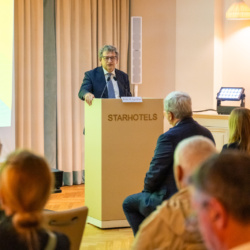 Zeno D’Agostino, President of COSELAG – Consorzio di Sviluppo Economico Locale dell’Area Giuliana
Zeno D’Agostino, President of COSELAG – Consorzio di Sviluppo Economico Locale dell’Area Giuliana
-
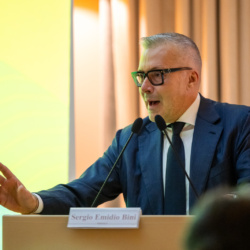 Sergio Emidio Bini, Regional Councillor for Economic Development of the Friuli Venezia Giulia Region
Sergio Emidio Bini, Regional Councillor for Economic Development of the Friuli Venezia Giulia Region
-
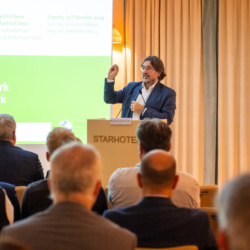 Key note speaker Raimondo Orsini, Director of the Foundation for Sustainable Development
Key note speaker Raimondo Orsini, Director of the Foundation for Sustainable Development
-
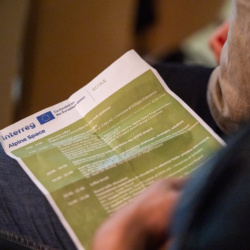
-
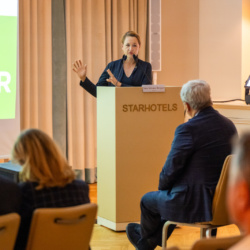 Key note speaker Ana Struna Bregar, CEO of CER Sustainable Business Network
Key note speaker Ana Struna Bregar, CEO of CER Sustainable Business Network
-
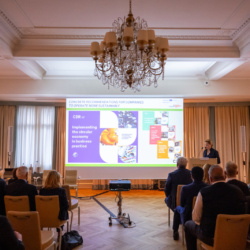
-
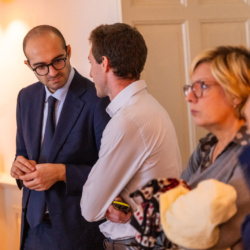
-
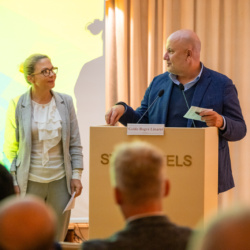 Guido Piccloli, ALOT and Msc. TIna Pezdirc Nograšek, RRA LUR
Guido Piccloli, ALOT and Msc. TIna Pezdirc Nograšek, RRA LUR
-
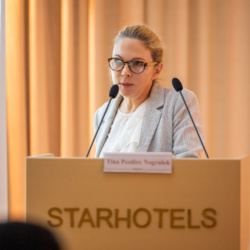 Msc. Tina Pezdirc Nograšek, project manager of ECOLE project at RRA LUR
Msc. Tina Pezdirc Nograšek, project manager of ECOLE project at RRA LUR
-
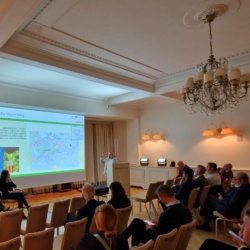 Msc. Tina Pezdirc Nograšek, RRA LUR
Msc. Tina Pezdirc Nograšek, RRA LUR
-
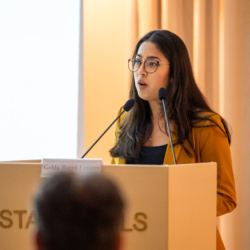 Gelda Bográ Linares,TUM International GmbH - The University Company, Munich
Gelda Bográ Linares,TUM International GmbH - The University Company, Munich
-
 Round table “Transnational Cooperation for Circularity in Industrial Parks”
Round table “Transnational Cooperation for Circularity in Industrial Parks”
-
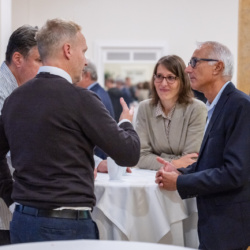
-
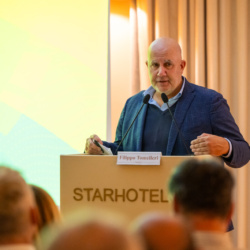 Guido Piccoli, ALOT, Italy - coordinator of ECOLE project
Guido Piccoli, ALOT, Italy - coordinator of ECOLE project
-
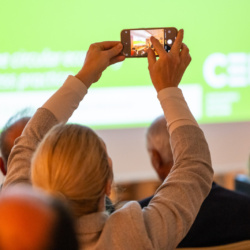
-
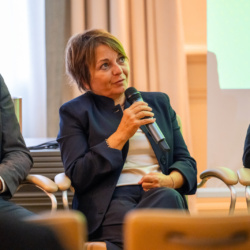 Sandra Primiceri, Vice-President of COSELAG – Consorzio di Sviluppo Economico Locale dell’Area Giuliana
Sandra Primiceri, Vice-President of COSELAG – Consorzio di Sviluppo Economico Locale dell’Area Giuliana
-
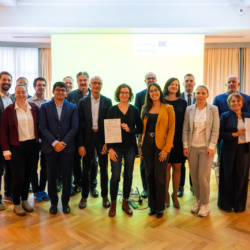 Partnership of ECOLE Interreg Alpine Space project
Partnership of ECOLE Interreg Alpine Space project
-
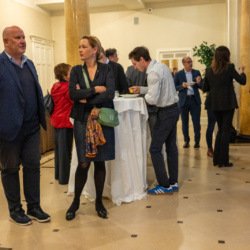
-
project
ECOLE: ECO industrial park network for the Alpine Regions Leveraging smart and Circular Economy
